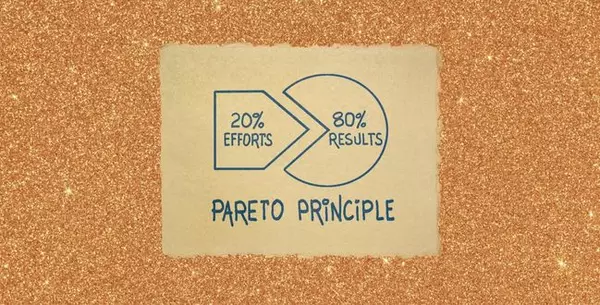How Real Estate Agents Help Home Buyers
I’ll come right out at the start and tell you I’m a real estate agent—proudly so! Nice to meet you! I’m not trying to sell you anything, but I’m pleased to be of service. I’m giving you the benefits of experience and advice I have gleaned throughout my career selling houses and being in real estate transactions—for both sellers and buyers. If you want me to help you find a house, we can talk. Call me if you need me.
Technology has changed the way homes are sought and bought today. In this “Information Era,” most buyers are first introduced to the home they eventually purchase via the internet, through Zillow, Realtor.com, or one of hundreds of other real estate websites.
With all this information available, you might wonder if you need a buyer's real estate agent. Can you handle the process on your own?
WHY HOME BUYERS NEED A REAL ESTATE AGENT
Ah, not so fast, friend. The reasons to use a real estate agent today are as valid as yesterday. The ease of online transactions and the proiferation of services to assist buyers in handling their own real estate transactions came about recently, throughout the last decade. This has caused buyers to wonder if using a real estate agent is no longer necessary or if it's an expense that can be avoided. While doing the work yourself can save you money if you buy a “For Sale By Owner” (FSBO) house and the seller agrees to reduce the price to offset agent compensation, for many, a do-it-yourself home purchase might be pricier than a real estate agent’s compensation in the long run.
On most home sales, there is a listing agent (the agent engaged by the seller to sell the property) and a selling agent (the agent who introduces the eventual buyer into the transaction). The selling agent is sometimes called the “buyer’s agent” because he or she is often working on a certain buyer’s behalf, and it’s easier than explaining that the selling agent is not the listing agent but really the buyer’s agent.
There are some real estate agents that market themselves as “buyer’s agents,” “exclusive buyer’s agents,” or “buyer’s representatives.” These real estate agents have chosen to make a business of finding homes for prospective buyers and handling the negotiations and transactions attendant to the purchase. These agents want to accentuate the reasons a buyer shouldn’t go directly to the listing agent when they purchase real estate.
A buyer who goes directly to the listing agent and allows that agent to “manage” both sides of the transaction is dealing with an agent who has conflicting responsibilities. Their job is to get a good price for the seller, and they might not zealously represent the interests of the buyer. Those who market themselves as buyer’s agents indicate they’re only working for the buyer in a real estate transaction.
A buyer's agent is therefore a real estate professional dedicated solely to representing your interests as the buyer throughout the home-buying process. Once you agree to work with a buyer’s agent, you will sign a written buyer agreement outlining key services and compensation. Then the buyer’s agent will work on your behalf, helping you find properties that meet your criteria, scheduling viewings, negotiating offers, and handling all the necessary paperwork and legalities involved in purchasing a home.
BUYER AGREEMENTS
New regulations will mean that potential home buyers will need to enter into a written buyer’s agreement before touring homes. A written buyer agreement is a formal contract between you and your buyer's agent. It outlines the services your agent will provide, the terms of your working relationship, and how the agent will be compensated. Compensation for the buyer’s agent can be directly paid by the buyer or negotiated in various forms. This agreement ensures that both you and your agent are clear on your mutual expectations and responsibilities.
Key Components of a Buyer’s Agreement
-
-
Services Provided: Details of what your agent will do for you, such as finding homes, arranging viewings, and negotiating terms.
-
Compensation: Clear disclosure of how your agent will be paid. This could be a percentage of the purchase price, a flat fee, or another arrangement. It's important to know that agent fees are negotiable and not set by law.
-
Term and Termination: The duration of the agreement and conditions under which it can be terminated by either party.
-
Consumer Protection: Disclosures related to your rights, confidentiality, and any potential conflicts of interest.
-
Entering into a buyer's agreement provides several benefits. First, it brings clarity to your relationship with your agent, ensuring that both parties understand their roles and responsibilities. Second, it demonstrates a commitment from your agent to dedicate their efforts to your home search. Lastly, it offers protection by safeguarding your interests and ensuring transparency throughout the transaction. By having a formal agreement, you can proceed with confidence, knowing that your agent is committed to helping you find your dream home while protecting your interests.
MORE ACCESS TO THE REAL ESTATE MARKET
A real estate agent will have better access to the market and a special knowledge of local conditions. The agent is a full-time liaison between sellers and buyers. An agent will have ready access to other properties listed by other agents. Buyers’ and sellers’ agents know how to put a real estate deal together.
A real estate agent will track down homes that meet your criteria, contact sellers’ agents, and secure appointments for viewing the homes. On their own, buyers have a more difficult time with these things. This is even more so the case when a buyer is moving due to relocation or employment opportunity and does not engage a buyer’s agent to handle matters.
NEGOTIATING IS HARDER ON YOUR OWN
A real estate agent will keep the transaction “at arm’s length,” such that personalities and emotions do not become involved. Price negotiations take a special skill and understanding of the psychology of offering and counter-offering.
Agents keep the transaction dispassionate and rational. For example, a buyer (you) might like a home but despise its wood-paneled walls, shag carpet, and lurid orange kitchen. When you work with an agent, you can express your opinions on the current owner’s decorating skills and complain about how much it will cost to upgrade the home without insulting the owner. Your agent will translate that to the seller—that you very much like the property but can see having to spend a certain amount in decorating costs, and thus can offer that much less.
CONTRACTUALLY SPEAKING…
There are many contracts and documents involved in purchasing a house. The stack is more than an inch thick.
Unless you’re a real estate lawyer or title agent, these documents will be foreign to you. Yet, they require detailed and accurate completions. Buying a property is not necessarily a “fill-in-the-blanks” transaction. One mistake, let’s say in title work, could haunt the buyer well down the line after purchase. This very situation happened. A property that sat on a double lot was put on the market. The neighbor bought it to carve off a bit of the second lot to expand his own yard.
The seller then put the home back on the market, and it sold. Months later, through a property tax notification, it came out that, in preparing new deeds for the properties, the expanded yard area was correctly in the name of the neighbor; however, the house had been transferred to the home buyer. The new homeowner now owned both houses, and the neighbor owned his expanded driveway and yard.
Fortunately, they were good neighbors and settled the matter with a few signatures.
A real estate agent deals regularly with these contracts, conditions, and unexpected situations and is familiar with which conditions should be used, when they can safely be removed, and how to use the contract to protect you.
YOU WON'T NECESSARILY SAVE MONEY
The point of not using a real estate agent would be to save money, right? Otherwise, why would someone turn down professional assistance in finding a home?
However, it’s unlikely that both the buyer and the seller will reap the benefits of not paying real estate agents. Buyers looking to purchase a home sold by owner without an agent may believe they can save money on the home by not having an agent involved, and so they look solely at FSBO houses. They might expect money to be saved and make an offer accordingly. Unless the buyer and seller agree to split the savings, they can’t both save that money—and that’s if the listing price was not already lowered to make it more market-attractive.
Here’s a short list of the advantages that using a real estate agent can bring to your buying experience:
-
-
Education and experience
-
Neighborhood knowledge
-
Price guidance
-
Market conditions information
-
Negotiation skills and confidentiality
-
The ability to handle paperwork
-
The ability to handle closing questions
-
Relationships for future business
-
It’s extremely important to know the “ins and outs” of real estate agents before you bring one along with you to help in your search for a home, just so that you know what to expect, and what will be expected of you.
Recent Posts











